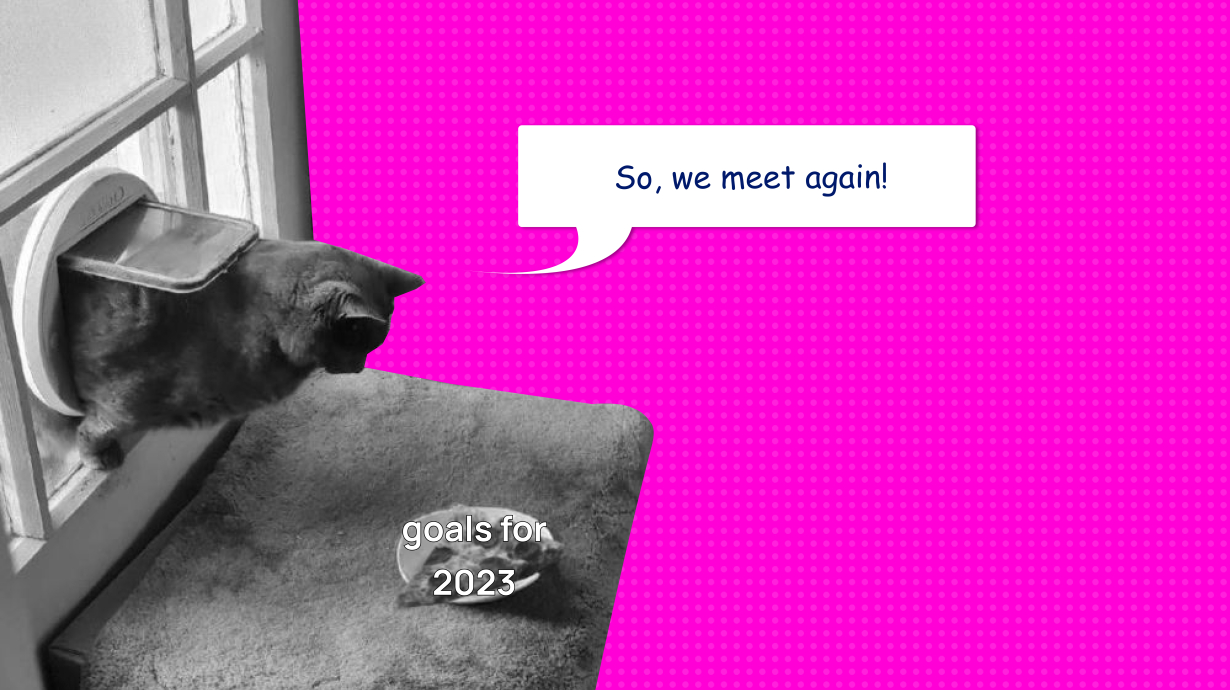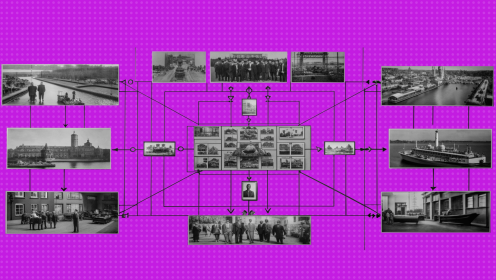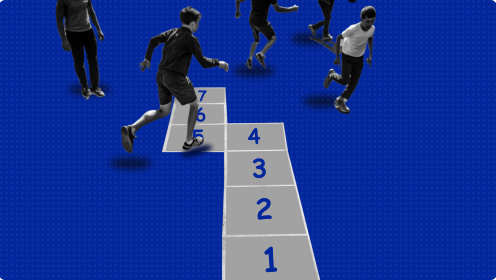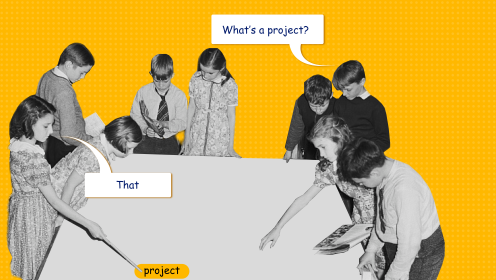The pirate Francis Drake once said: "Big things start small." Indeed, a dream remains a dream until it begins to be realized in small steps.
This motto helps me to realize what I want. For the third year I have been planning for a long period — I formulate what I want to achieve and analyze how realistic it is. Such planning helps to treat life consciously and responsibly, and to achieve goals even more effectively. For example, if you want to climb to the second floor, cross 40 steps — also to achieve global dreams, you need to formulate each goal and small steps to achieve it. These are your "steps".
What is long-term planning?
Each of us has goals for the future, or at least an idea of what we want. This is not necessarily a point-by-point life, even "I will be president at 50", "I will move to a hot country" or "I will definitely start a family and have at least three children" is something.
But for now it's just a dream. The goal of a dream will become when you start making efforts to realize it. For example, you can dream of becoming president, or you can make it a goal — to decompose it into small steps that will help in implementation.
To achieve the goal, break it down into steps:
- Long-term plan for 5 years. Just write down the goals for the future.
- A strategic plan for 3-12 months helps to implement a long-term plan and not be distracted by secondary tasks.
For example, in order to move to Spain in two years, you need to improve your knowledge of Spanish, get a visa and prepare for the move.
- Tactical plan for 1-4 weeks. You determine the steps that are necessary to implement the strategy.
Let's take the same move to Spain. The goal is to move, the strategy is to improve language skills and prepare for the move, and the tactics for the next 1-4 weeks is to find a tutor, consult with the embassy about the necessary documents and conduct an audit of unnecessary things and furniture that you will not take with you on a trip.
- The schedule for the day is the last stage of planning. This is the most detailed decomposition of the goal, which helps to achieve more in small steps.
To make a schedule for the day, ask yourself the question — "what can I do today to achieve the goal faster?". For example, do not postpone the search for a tutor for tomorrow, but put it on the schedule for today.
Why write plans for the year
Brian Tracy, a consultant in the psychology of success, once said: "Every minute spent on planning saves ten minutes of your labor." When you plan your work in advance, the result is more effective than if you do it "on a whim".
I always plan things for the day and week — it helps to focus on the important things. And it turns out to formulate "important" with the help of a plan for the year. In the coming year, I will also plan goals, and I advise you:
- It helps not to go with the flow, but to realize a global dream. You focus on the important and don't waste valuable time on the secondary.
- Motivates to achieve goals and not to give up.
- Helps to study yourself and your desires.
- You get rid of the fear of uncertainty. The future is vague and distant, so many people live in the present day, trying not to think about the future. If you plan for a long time, you realize that you are in control of your life, and the fear decreases.
- Helps to analyze the past. At the end of each year, I summarize what has been done and what has not. Then I try to answer myself why I didn't achieve something from the plan — and I see where I'm wasting my time ineffectively.
The only downside is that you have to dig into yourself and analyze what you really want. Not everyone is ready to get into themselves — for example, many cannot admit that they do not like work and it's time to change it. Not everyone is ready to face the consequences of such a decision. This is normal — everything has its time.
5 tips on how to make a plan for the new year
Two weeks until 2025 is the time to sum up the results of 2024 and set goals for the next one. I share 5 tips that will help you make a plan consciously:
Tip 1: Analyze your achievements
Study the achievements for the outgoing year. Think about how they relate to global goals — maybe you're doing everything right or, conversely, going in the wrong direction.
Set aside time and write down all the significant achievements for the year — a calendar, film, diaries, etc. will help in this. Our brain is used to recording unfinished events, so it seems that we did not have time for anything. Don't fall for these tricks of the brain — but take the time to analyze the outgoing year.
Tip 2: Make up the balance wheel
When one area suffers, the achievements in the other are no longer pleasing. For example, if we are doing well at work, but it does not fit in our personal life, we will not be able to rejoice at the next salary increase.
Therefore, when planning goals for the year, do not ignore important areas of life for you. This is helped by the Balance Wheel, which I already talked about in the article about work and personal life balance.
The wheel is a visual list of areas of life that are important to you. The main task of the wheel is to track the level of balance in each. A high level makes you happier, and a low level signals that something is sinking.
For example, the directions "Health", "Self-realization", "Personal life and family", "Education", "Travel" and "Entertainment" are important to me. To analyze in which area the gaps are, I draw a wheel and divide it into pieces, like a pizza. I analyze the quality of each sphere and paint over, up to a certain mark — as in a scale from 1 to 10.
Tip 3: Make goals for each area
After you have selected the areas and analyzed the gaps, we proceed to the formulation of goals. Identify for each direction 3-5 important ones that you want to achieve.
For example, in the field of "Health" there may be such goals:
1. Cure a sore back.
2. Sit on the splits.
3. Make laser vision correction.
In the field of "Personal life and family":
1. Go with her husband to a family psychologist.
2. Spend a vacation with mom and dad.
3. Start pregnancy planning.
And in the field of "Education" these are:
1. Find an English tutor.
2. Take a course on working with Figma.
3. Read 7 books.
Tip 4: Detail the goals
When the goals are set, check them for viability — how realistic it is to achieve them in 2025. I recommend the SMART formula — it helps to describe goals in more detail and thereby analyze for achievability.
There are 5 actions in the formula, as well as letters in the formula name:
S (specific) — specific. Add details to make the goal more detailed. Answer yourself the questions "what?", "where?", "how much?", "why?".
M (measurable) — measurable. Add the goal numbers — KPIs that will help measure the result.
A (attainable) — achievable. Explain which tools will help you achieve your goal (or postpone this point — I will explain it in more detail in the next tip).
R (relevant) — relevant. Analyze how much the goal coincides with the global dream.
T (time-board) — add deadline goals if possible.
No: Move to Spain.
Yes: By the end of 2025, make a work visa and move to live in Barcelona, where a rented apartment will be issued and a school for the child will be found.
Tip 5: Decompose goals
Formulated goals are already half the case! There is a step-by-step plan that will lead to their achievement. For example:
The goal: To get a work visa by the end of 2025 and move to live in Barcelona, where a rented apartment will be issued and a school for the child will be found.
Step-by-step plan:
- Find tutors in Spanish and study 2 times a week.
- Submit documents to the consulate and get a visa.
- Decide on the area and a rented apartment.
- Find a school for a child, as well as find a remote job, preferably abroad.
- Start saving 500 euros a month.
After you formulate your goals in detail and draw up a tactical plan to achieve them, the plan for 2025 is ready! The main thing is to continue to follow the strategy and not to leave the planned plan — to do this, create a weekly schedule and plan for every day. For example, in WEEEK there is a task planning for a week and a month — register and try. This will help not to go with the flow, but to achieve goals. Have a productive year 2025!


















